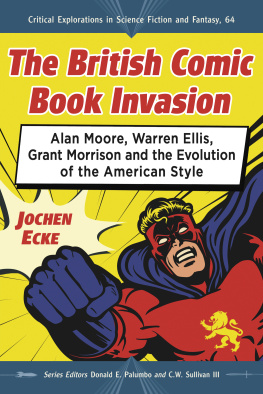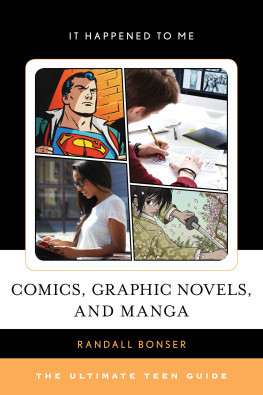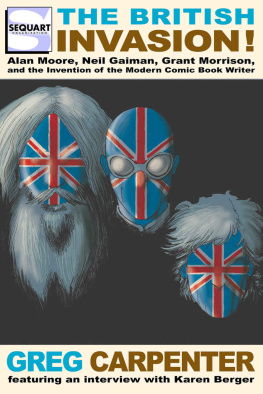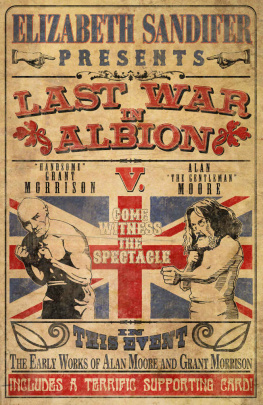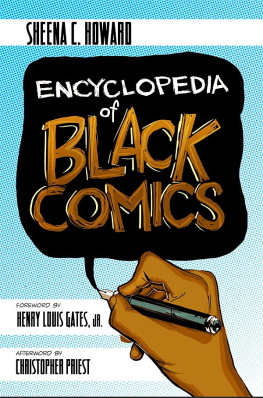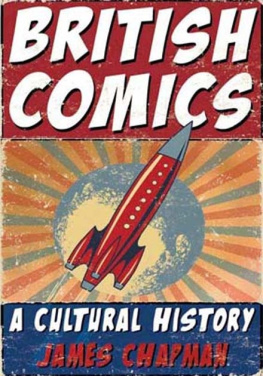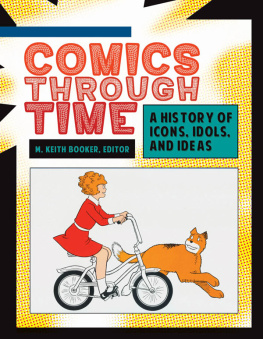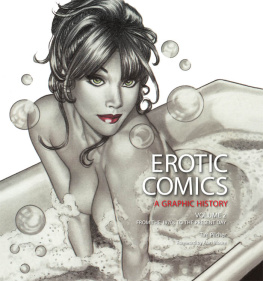
CRITICAL EXPLORATIONS IN SCIENCE FICTION AND FANTASY
(a series edited by Donald E. Palumbo and C.W. Sullivan III)
Earlier Works: www.mcfarlandpub.com
Recent Works: 37Lois McMaster Bujold: Essays (ed. Janet Brennan Croft, 2013)
Girls Transforming: Invisibility and Age-Shifting in Childrens Fantasy Fiction Since the 1970s (Sanna Lehtonen, 2013)
Doctor Who in Time and Space: Essays (ed. Gillian I. Leitch, 2013)
The Worlds of Farscape: Essays (ed. Sherry Ginn, 2013)
Orbiting Ray Bradburys Mars (ed. Gloria McMillan, 2013)
The Heritage of Heinlein (Thomas D. Clareson and Joe Sanders, 2014)
The Past That Might Have Been, the Future That May Come (Lauren J. Lacey, 2014)
Environments in Science Fiction: Essays (ed. Susan M. Bernardo, 2014)
Discworld and the Disciplines: Critical Approaches to the Terry Pratchett Works (ed. Anne Hiebert Alton, William C. Spruiell, 2014)
Nature and the Numinous in Mythopoeic Fantasy Literature (Christopher Straw Brawley, 2014)
J.R.R. Tolkien, Robert E. Howard and the Birth of Modern Fantasy (Deke Parsons, 2014)
The Monomyth in American Science Fiction Films (Donald E. Palumbo, 2014)
The Fantastic in Holocaust Literature and Film (ed. Judith B. Kerman, John Edgar Browning, 2014)
Star Wars in the Public Square (Derek R. Sweet, 2016)
An Asimov Companion (Donald E. Palumbo, 2016)
Michael Moorcock (Mark Scroggins, 2016)
The Last Midnight: Essays (ed. Leisa A. Clark, Amanda Firestone, Mary F. Pharr, 2016)
The Science Fiction Mythmakers: Religion, Science and Philosophy in Wells, Clarke, Dick and Herbert (Jennifer Simkins, 2016)
Gender and the Quest in British Science Fiction Television (Tom Powers, 2016)
Saving the World Through Science Fiction: James Gunn (Michael R. Page, 2017)
Wells Meets Deleuze (Michael Starr, 2017)
Science Fiction and Futurism: Their Terms and Ideas (Ace G. Pilkington, 2017)
Science Fiction in Classic Rock: Musical Explorations of Space, Technology and the Imagination, 19671982 (Robert McParland, 2017)
Patricia A. McKillip and the Art of Fantasy World-Building (Audrey Isabel Taylor, 2017)
The Fabulous Journeys of Alice and Pinocchio: Exploring Their Parallel Worlds (Laura Tosi with Peter Hunt, 2018)
A Dune Companion: Characters, Places and Terms in Frank Herberts Original Six Novels (Donald E. Palumbo, 2018)
Fantasy Literature and Christianity: A Study of the Mistborn, Coldfire, Fionavar Tapestry and Chronicles of Thomas Covenant Series (Weronika aszkiewicz, 2018)
The British Comic Invasion: Alan Moore, Warren Ellis, Grant Morrison and the Evolution of the American Style (Jochen Ecke, 2019)
The Archive Incarnate: The Embodiment and Transmission of Knowledge in Science Fiction (Joseph Hurtgen, 2018)
The British Comic Book Invasion
Alan Moore, Warren Ellis, Grant Morrison and the Evolution of the American Style
Jochen Ecke
CRITICAL EXPLORATIONS IN SCIENCE FICTION AND FANTASY, 64
Series Editors Donald E. Palumbo and C.W. Sullivan III

McFarland & Company, Inc., Publishers
Jefferson, North Carolina
LIBRARY OF CONGRESS CATALOGUING DATA ARE AVAILABLE
BRITISH LIBRARY CATALOGUING DATA ARE AVAILABLE
e-ISBN: 978-1-4766-3500-2
2019 Jochen Ecke. All rights reserved
No part of this book may be reproduced or transmitted in any form or by any means, electronic or mechanical, including photocopying or recording, or by any information storage and retrieval system, without permission in writing from the publisher.
Front cover illustration 2019 iStock
McFarland & Company, Inc., Publishers
Box 611, Jefferson, North Carolina 28640
www.mcfarlandpub.com
Acknowledgments
I am greatly indebted to Anja Mller-Wood for her commitment to and support of this project. This study has benefited considerably from her advice and insightful comments.
Mark Berninger and Gideon Haberkorn made my first steps in the academic world possible by putting me on the organizational team of the Comics as a Nexus of Cultures conference. Thank you for your trust and friendship. I would also like to thank Patrick Gill and Willi Barth for their support.
Many colleagues gave me the opportunity to develop my ideas on conference panels, on journal pages and in essay collections. I would like to express my gratitude to Nathan Wiseman-Trowse, Mike Starr, Daniel Stein, Christina Meyer, Shane Denson, Alfred Hornung and Matthew J.A. Green for providing a forum for young scholars to test the waters.
Ruben Schmitt, Thomas Nickel, and Christian Giegerich got me into comics and, most important of all, made sure that I kept reading. Lucas Kraus gave me the best education in the weird and the strange in the arts imaginable and continues to be a great friend. Thank you all.
Knut Brockmann has always been my favorite academic sparring partner. He also lent me his copy of David Bordwells Narration in the Fiction Film some years ago. One of these days, I am actually going to return it.
This book was originally submitted as a doctoral thesis entitled The British Invasion of American Comics: A Poetics at Johannes Gutenberg University in Mainz, Germany.
Helmut, Annemarie, Michael, and Johanna: none of this would exist without you. I am incredibly grateful for your boundless patience, understanding and help. This one is for you, with love.
All mistakes and omissions are, of course, my own.
A Note on References
Until the 1990s, most U.S. mainstream comics serials were not created with the intent to eventually reprint the books in collected editions. For this reason, they often lack pagination, even when they are eventually collected in book form. As a consequence, this study contains many references which, to the frustration of the reader, only state n.pag. instead of a page number. To make references more precise, panel number(s) have been added in most cases. The Arabic number given after the page number or n.pag. therefore always refers to the panel number in intuitive reading order. Some of the comic books cited are paginated, but start the pagination over at the beginning of each chapter. In these cases, the Roman numeral after the authors/s name(s) refers to the chapter number; the subsequent Arabic number designates the page; and the final Arabic number points to the panel. To give an example: the parenthetic reference (XI, 9, 3) refers to chapter 11 of the respective comic book, page nine, panel three.
Introduction:
How to Read This Book
There is no such thing as the British Invasion of American comics. This may seem like an unfortunate first sentence for a study devoted to the same, but it is only a slight exaggeration. In fact, this suspicion may dawn on any researcher working on this phenomenon at some point. Upon embarking on this project, it quickly became apparent that the commonplace account of the British Invasion of American comics is at the very least problematic. However, this did not prove disastrous. In the end, it merely led to a different account of the British Invasion, albeit one that often contradicts the standard version of this part of comics history. Here is a summary of what comics readers and scholars typically mean by British Invasion: at the beginning of the 1980s, representatives of the U.S. mainstream comics industry started to approach British comics writers and artists with the intent to recruit them for work on U.S. serials. Typically, comics historiography invokes Alan Moore as one of the first British comics creators to cross the pond. He is also considered the most important figure of the first wave of these artistic emigrants, and perhaps of the whole of the British Invasion. One of the two large U.S. comics publishers, DC Comics, courted Moore at the beginning of the 1980s because of his highly innovative work on British comics serials like
Next page
